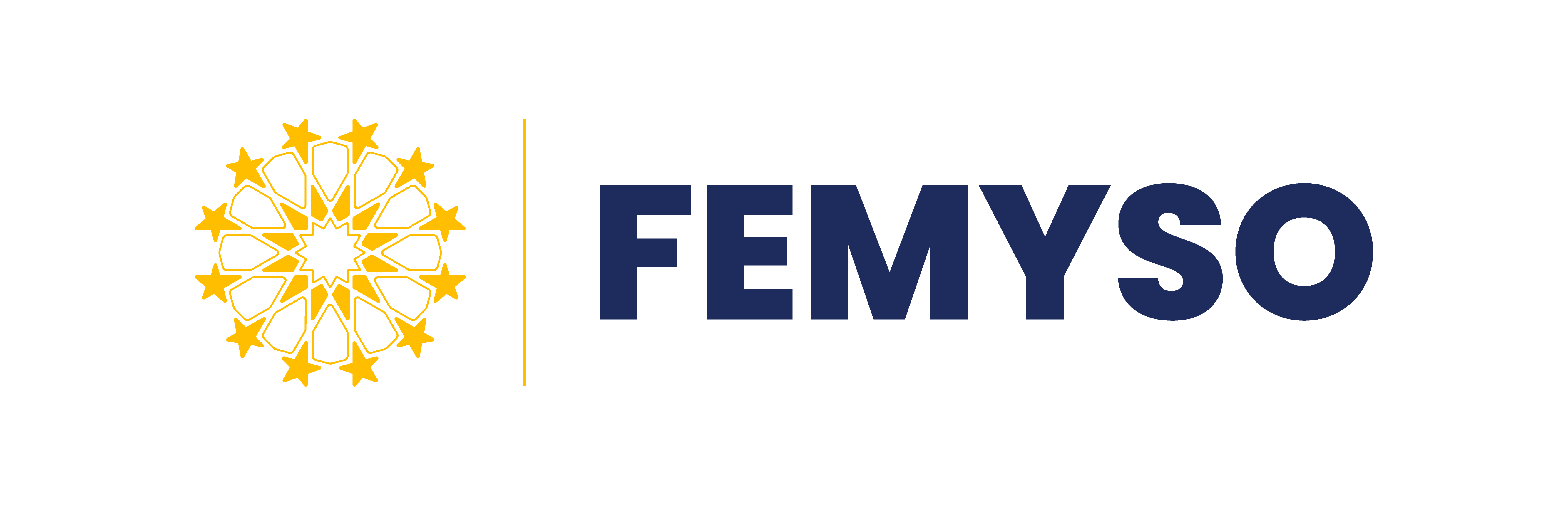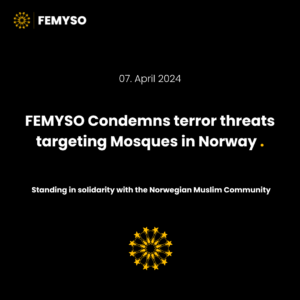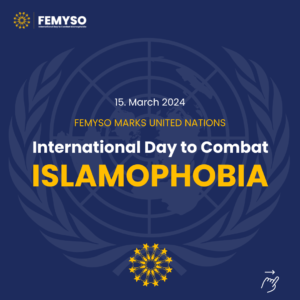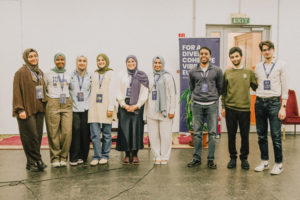Social networks are often defined as a vital necessity by some, or as an addiction and dependence by some others. In his book “Bi Bakıp Çıkcm/ Let’s have a look and I will quit soon”, the Turkish author Seyfullah Şenel lists a large number of negative effects that come from social networks and that affect our mental health, for example: the wasting of time, distortion of reality, desire for attention, loss of self-confidence, bullying, etc. On the other hand it explains that if a moderate use is made by taking the positive aspects and turning them into potentials they can positively affect our well-being as a community in general and as individuals in particular. In this case, he mentions the promotion of activism, volunteerism, calls for good deeds and contribution, maintaining family or friend ties, etc.
One of the most beloved Muslim schoolars in Turkey, Nuredin Yilldiz, has dedicated an entire book to this topic, in the form of a manual for the usage of the Internet by today’s Muslims and the rules that we must keep in mind during this usage, entitled “Internet Fiqh”. The author, in this manual has focused on the permissible and forbidden aspects that accompany us during all the time we use the internet, especially social networks giving even some religious judgments (fatwas) very useful to the reader.
Both of them more or less agree to the same idea: we all have to try not to spend too much time on social media and use them to our advantage, by using them and not being used by them. But how much can be considered to be “too much” and a “moderate usage”? How can we determine if our time is wasted or we are investing it in our benefit?
Anyone must find the answers within themselves based on the amount of free time available, daily commitments and priorities. One may think that the right solution is to close all the profiles and totally distancing themselves from social networks. From a personal experience of disabling profiles for a certain period of time, I have come to the conclusion that whether we like it or not, social networks have become an essential part of our lives. The chances are that social networks and their various forms will continue for a long time. So, we can’t get rid of them or exclude them from our lives.
On the other hand, a misuse of them can have negative effects on our faith (Iman). I would like to list some tips that are more related to our priorities and responsibilities towards ourselves and towards the community to maintain a good state of what can be called “spiritual health”.
Create a group of friends kind of a social circle with whom you meet regularly.
You may think that you do not need to meet your friends face to face when you regularly talk on the phone all the time, chat or send endless messages during the day. But it’s not the same thing. Maintaining a face-to-face-relation is very important for our faith: it is enough to remember here the logic behind some forms of worship which are builded under the principle of the union (congregation) such as praying five times in the mosque (especially for men) on Friday (Jummah So through brotherhood and cooperation among each other we improve our iman and work for common goals for the benefit of religion. We live in an age that pushes us to be as connected to the virtual world as possible but not at all focused on the importance of face-to-face communication. Loneliness has turned into an epidemic disease according to The American Psychological Association. The effects of loneliness are astounding and are taking on unimaginable proportions. No matter how active you are on social media, you will not recover from loneliness unless you have a strong connection to your relationship
Keep some things private
Allah says in the Glorious Qur’an: “Those who spend their wealth [in Allah ‘s way] by night and by day, secretly and publicly – they will have their reward with their Lord. And no fear will there be concerning them, nor will they grieve.”(2: 274)
In the Qur’an, then, we find both forms of giving: secretly and openly. The balance we have to find between these two forms must be seeked in ourselves by questioning our intentions: whether we are doing this to show up, to brag, or to inspire and motivate others to do the same.
As we care about our work, which we publish openly, and there is nothing wrong with taking care of our image, we need to multiply the hidden work. There is nothing more beautiful than words and deeds hidden between you and God. These reinforce piety and fulfill our need to maintain a relationship between us and God and out of sight.
Do not activate the autopilot option
Our finger is so used to scrolling that it has become a mindless maneuver. The brain muscles act in such an instinctively way that it can happen that we take the mobile phone in our hands, either during a conversation or by performing another activity, and we start scrolling without even being focused on the phone, in fact, but on the activity in question.
Try to avoid this, because Ramadan is a good time to let go of addictions. Stop for a few seconds each time you pick up the phone. Meditate on why you opened the Internet: to send a message, to keep up to date with the latest news, to read something interesting, or to share anything you think might be helpful to her others?
Temporary fasting.
As we fast from food and water we can fast from social media too. Try to withdraw from social networks for a few days or on a certain day for a few hours. Close your profiles for a while because this time period helps you focus on your life and your priorities outside the virtual world.
At certain times of the day, especially in the evenings when a person is usually gripped by feelings of sadness and self-judgment because he has not been able to meet certain daily goals, staying on social media can be very unhealthy to our self-esteem. This is because people usually prefer to share positive aspects of their lives with others and are reluctant to share daily failures or challenges. Deactivation helps us to separate ourselves and meditate on the fact that we are responsible for what we see and how we see it. And remember this hadith- Rasoolullah (Sallallhu Alayhi wa Sallam) said: “Do not look to those above you. Look to those below you, as it will more likely remind you of Allah’s favours bestowed on you.” [Sahih al Bukhari and Sahih Muslim]
Post as less as possible and think about the responsibility for everything you post.
Since social networks have this power of distorting reality as if it were another world, people take the courage to express things that in real life they would never have dared to say. But we are responsible for everything we write as well as for everything we say with the difference that in social networks there are traces left, a wide audience will witness, while in the real world words can be forgotten or only left in between two interlocutors. But if we repent and seek forgiveness, are we able to do so publicly? Are we able to do this in front of hundreds of thousands of followers? Scary, isn’t it ?! I recall in this case the prophetic saying: “Whoever brings a good habit or tradition to Islam, will be rewarded for it, but also the reward of all those who work after him, without diminishing their reward at all. And whoever brings a bad habit or tradition to Islam, it will be a burden on him, but also the burden of all those who do so after him, without diminishing the responsibility and punishment of those others.”
Since Ramadan is always a new beginning to get away from bad habits, we can take this opportunity to set some boundaries for ourselves regarding the use of social media. Let’s start using it, for good work and to leave good traces, and not being used by!
Nada Dosti




